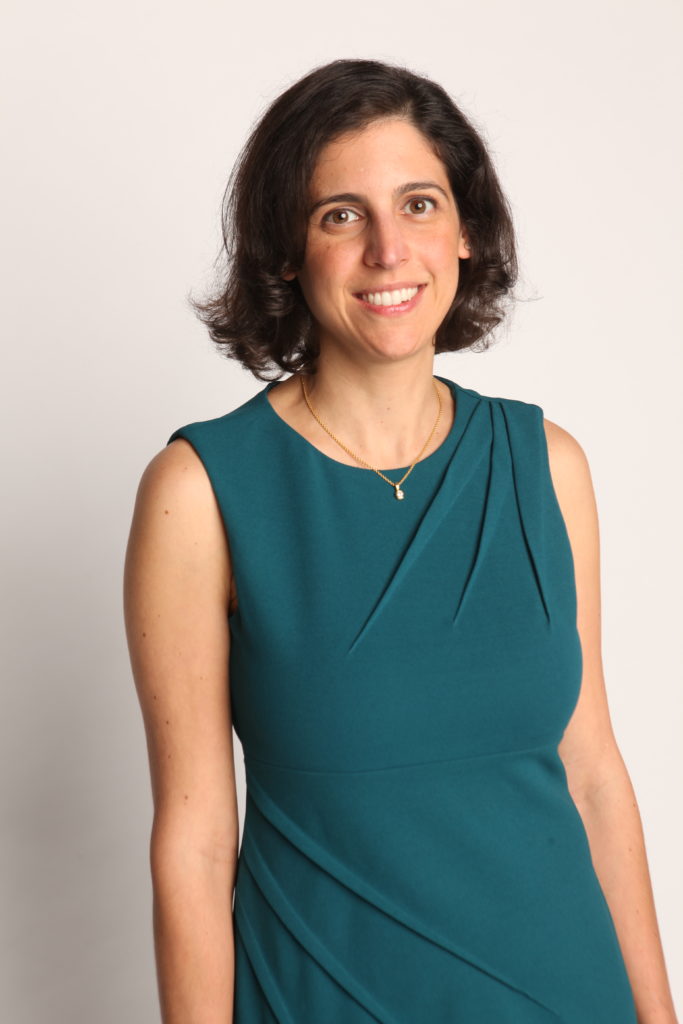 Ramit Mizrahi has dedicated her career to helping others as an employment lawyer. Her former clients have described her as “passionate and compassionate,” and she brings this same passion, compassion, and connection to her mediation practice.
Ramit Mizrahi has dedicated her career to helping others as an employment lawyer. Her former clients have described her as “passionate and compassionate,” and she brings this same passion, compassion, and connection to her mediation practice.
Ramit grew up in New York City as the daughter of two immigrants who were working toward the American Dream. Her parents were small business owners, and she watched how their work shaped their identity, pride, and well-being. She developed an appreciation for the importance of our work in each of our lives.
While in college at UC-Berkeley, Ramit majored in Business Administration, with aspirations of being a business owner as well. She gravitated toward quantitative coursework, including statistics, finance, economics, and accounting. As a result, she has a good understanding of how businesses are run. She became interested in law and, as she explored the subject, was drawn to learning about the various civil rights movements and how the courts were used to advance equal rights. In addition, she was fascinated by the research of social psychologists who sought to observe and explain how people think and act and why they do the things they do.
Inspired to work for civil rights, Ramit applied both to law school at Yale and to a Master’s program in Gender & Social Policy at the London School of Economics. She wanted to study how social policies and laws influence equality in greater depth, so she deferred starting at Yale for a year to complete the Master’s program. Her Master’s thesis focused on single mothers, wages, and poverty in the United States.
In law school, Ramit took an employment discrimination law class and was hooked! Her passion for employment law was confirmed during the summer she spent working at the Department of Justice’s Civil Rights Division, Disability Rights Section, where she focused on cases involving disability discrimination in employment. She also had the privilege of serving as a research assistant for Professor Vicki Schultz, one of the nation’s top sexual harassment and employment law scholars.
Upon graduating from law school, Ramit pounced at the opportunity to work on the Dukes v. Wal-Mart case, which then promised to be the largest employment class action certified. After that, Ramit spent a year working as a clerk for the Honorable Richard A. Paez of the United States Court of Appeal for the Ninth Circuit. It was a tremendous opportunity to see how our courts work from the inside, and an honor to work for such a thoughtful judge. Ramit spent the next six years at a civil rights firm, Allred, Maroko & Goldberg, where she was given free rein to select, litigate, and try the employment cases that motivated her and stirred her passions.
Ramit then founded Mizrahi Law in 2013. Over the next nine years, she focused on representing employees. Throughout that time, she took on less than 1.5% of cases that came her way, making sure that she truly believed in the case and could devote the time and resources needed to get the best outcome for her clients. Ramit fought to ensure that her clients could work with pride and dignity, and could provide and care for their families. She and her team worked closely with clients to know their specific needs.
Ramit has transitioned to full-time mediation. While Ramit’s career as an advocate focused on representing employees, she has never looked at cases in binary, black-and-white terms. Almost always, people on both side of the “v.” are trying to do their best. She has prided herself on civility and collegiality, forming strong relationships with opposing counsel that have often persisted even after a case was over.
Ramit’s passion permeates her mediation practice. Ramit has always been a strong proponent of mediation and dispute resolution. It gives the parties control, certainty, and closure. She completed mediation training through the Straus Institute for Dispute Resolution at Pepperdine University. She volunteered with the Resolve Law LA program, where she was recognized by the Los Angeles Superior Court with a certificate of appreciation for her contributions. There are few things more meaningful than helping bring closure to parties—feeling that you helped people land on their feet, that you helped save businesses (and the people behind them) from the risk of potential financial ruin, and feeling the tremendous relief in both rooms as the end is finally in sight.
In his book Man’s Search for Meaning, Viktor Frankl discusses the effects of a “provisional existence” on people—stuck in a current, challenging situation with no end in sight, they lose the ability to live for the future or to aim at an ultimate goal in life. Litigation can do this to the parties. Their lives are in a holding pattern, a black rain cloud following them around throughout the duration of the case. Often, people feel hopeless and helpless. A fair resolution buys them back their futures—it brings back hope.
Ramit’s aim is to be the type of mediator she looked for as an advocate: someone who can evaluate a case and respectfully convey the strengths and weaknesses of the case to the parties so that they can make informed decisions; someone lawyers can trust; someone who can connect with the parties, read them, anticipate their needs, and allow them to be felt and heard; and someone who works hard for a resolution that all sides feel is their best option.

